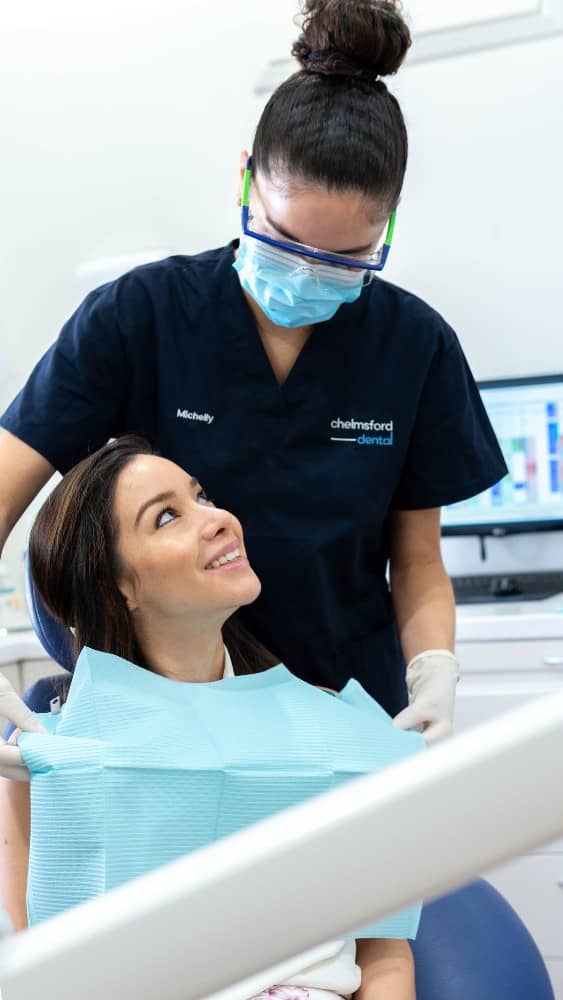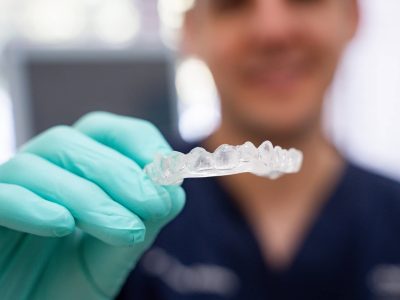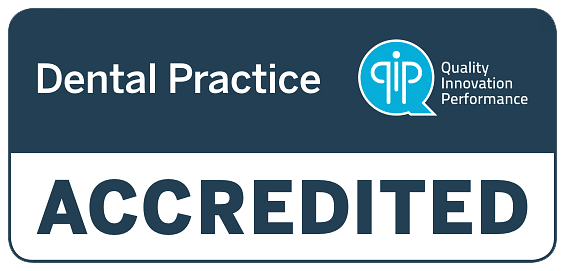When you think of oral health, your teeth are probably the first thing that comes to mind. But good oral health is more than just straight teeth, no cavities, or a bright smile. It also depends on how healthy your gums are.
Here are 8 tips on keeping your gums healthy to support your overall oral health.
8 Tips to Maintain Gum and Oral Health
1. Attend Regular Dental Visits
Gum disease causes tender, red, inflamed gum tissue that is prone to bleeding. Left untreated, it can lead to periodontitis, a serious form of gum disease that can permanently damage teeth and require extraction.
Gum disease begins when sticky plaque builds up along the gum line. This can lead to gingivitis, the first stage of gum disease. In its early stages, gum disease is often asymptomatic.
Attending regular dental checkups is one of the most important steps in maintaining healthy gums and preventing gum disease. Seeing your dentist for regular checkups ensures early stages of gum disease are caught right away, even before symptoms are present.
A professional dental cleaning can remove plaque and tartar to restore gum health and prevent gum disease from progressing. Catching gum disease early can reduce the risk of needing complex, costly interventions later on.
I recommend scheduling general checkups with your dentist every six months, or as recommended by your dental professional.
Learn More: Facts About Gum Disease Everyone Should Know
2. Use Proper Brushing Technique
You’ve probably already heard how important it is to brush your teeth twice a day to maintain good oral health and healthy gums. But do you know that brushing too often, with too hard of bristles, or with the wrong technique can do more harm than good?
Brushing too often or with too much pressure can damage the enamel and gums. Instead, use a soft bristle toothbrush and gentle circular motions to safely and effectively clean teeth for two minutes, twice a day.
You can use either a manual or an electric toothbrush as long as the bristles are soft. Remember to brush at a 45-degree angle to the gums and replace your toothbrush head at least once every three to four months.
3. Use Fluoride
I recommend using toothpaste with fluoride, an important mineral that is proven to help fortify teeth against decay and damage from acid. It also fights bacteria that can damage your gums.
Choose a fluoride-containing toothpaste with the ADA (Australian Dental Association) seal. To maximise fluoride effectiveness, swish your toothpaste around your mouth after brushing and spit out the excess but don’t rinse.
4. Floss Daily
Flossing daily is one of the most important steps in maintaining healthy gums. Brushing only reaches a portion of the surfaces of your teeth.
Flossing every day ensures all teeth surfaces are cleaned to prevent plaque and bacteria from building up in tiny crevices between your teeth.
Flossing daily helps:
- Prevent cavities
- Support healthy gum tissues
- Remove plaque and food debris
- Prevent bad breath
- Reduce tartar buildup
- Support overall oral health
- Reduce the risk of tender or bleeding gums
- Reduce mild gum disease and gingivitis
- Support a healthier heart
5. Quit Smoking and Avoid Tobacco Products
Smoking is known to harm overall health, and it also damages gums. It increases the risk of periodontal disease, oral cancer, and missing teeth.
Individuals who smoke are more prone to building up plaque, a key risk factor in gum disease.
Smoking also harms the gums by reducing oxygen in the blood. This reduced oxygen in the bloodstream slows down the healing process and prevents infected gums from healing. Talk with your dentist or doctor about how to quit smoking or using tobacco.
Learn More: The Impact of Life Choices on Oral Health: Diet, Smoking, and More
6. Use Mouthwash Once a Day
Mouthwash is a proven way to help reduce plaque and food debris in the mouth. Although it isn’t a substitute for proper brushing and flossing, it is a good way to help make your oral health routine even more effective.
Look for a mouthwash with the Australian Dental Association (ADA) seal or ask your dentist for mouthwash recommendations.
7. Consume a Healthy, Balanced Diet
Diets high in sugar and low in fibre and healthy fats put individuals at an increased risk of periodontal disease.
To keep your teeth and gums healthy, we recommend eating a balanced diet that is:
- Low in sugar
- High in fibre
- Rich in Omega 3 fatty acids
- Full of fruits, vegetables, fatty fish, legumes, eggs, and whole grains
- Low in acid (avoid soft drinks)
Learn More: The Role of Diet in Maintaining Good Oral Health
8. Discuss Any Medications With Your Dentist
If you are taking any medications, be sure to discuss them with your dentist. Certain medications can negatively impact gum health and put you at an increased risk of gum disease.
Your dentist can evaluate your medications and advise you on the best way to protect your gums.
Let Our Team At Chelmsford Dental Help You Enjoy Healthy Gums and a Bright Smile
Our goal at Chelmsford Dental is to support you in having the healthiest smile possible. Along with healthy, bright teeth, this also means having healthy gums.
Maintaining gum health will reduce your risk of periodontitis, missing teeth, and complications down the road.
Practice a good oral hygiene routine, eat a balanced diet, and see your dentist for regular checkups to keep your gums healthy.
Contact us by phone at (08) 6146 2555, by email at reception@chelmsforddental.com.au, or by filling out our online form. We’d be happy to discuss any of your concerns and book an appointment to get you started on your journey to healthy gums.







